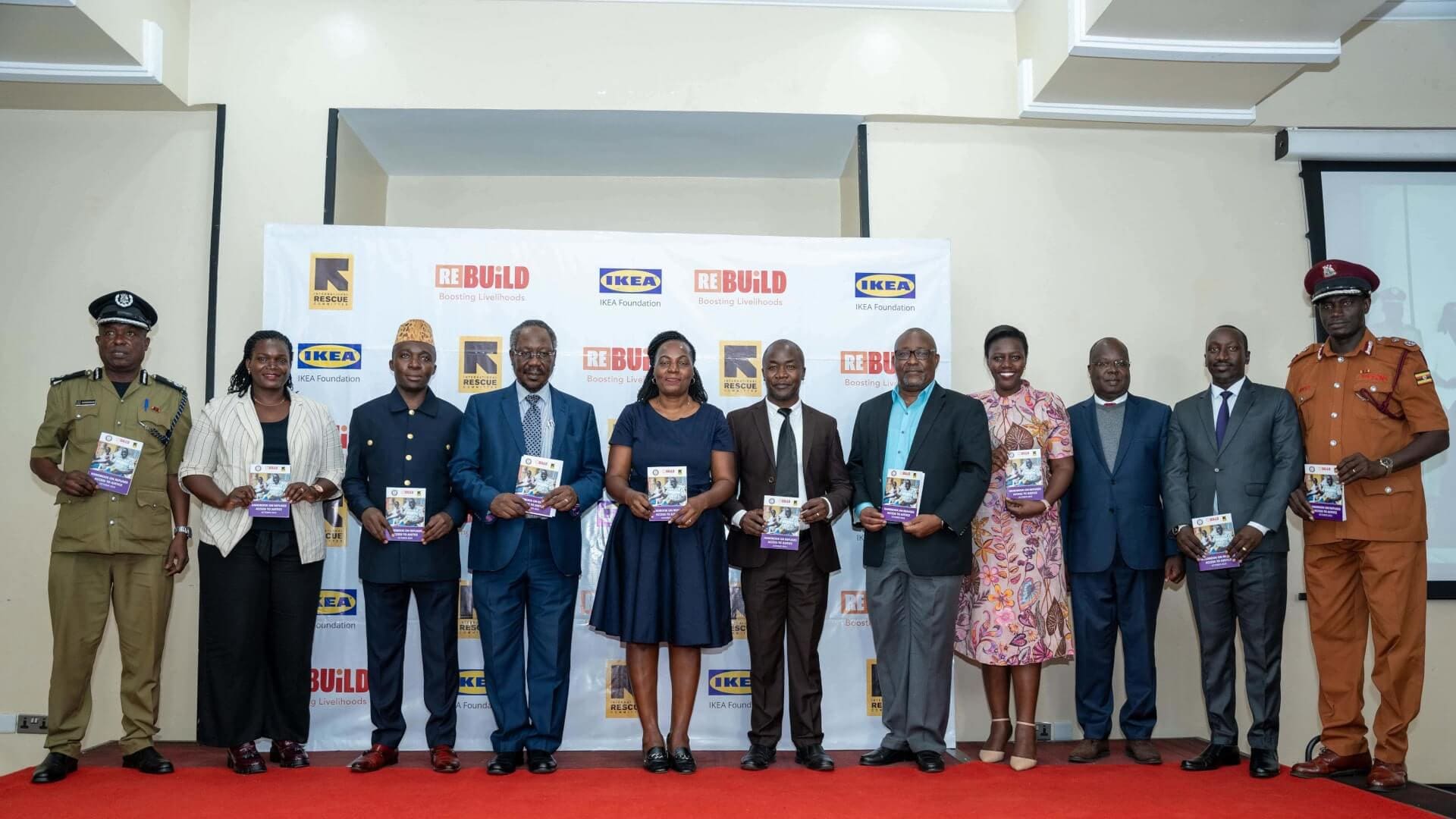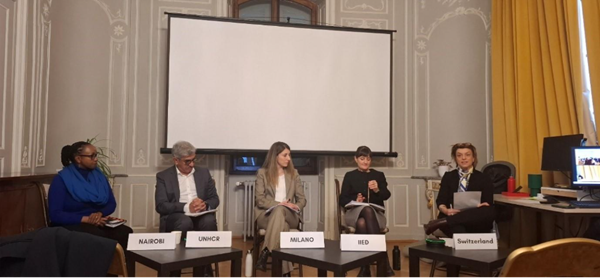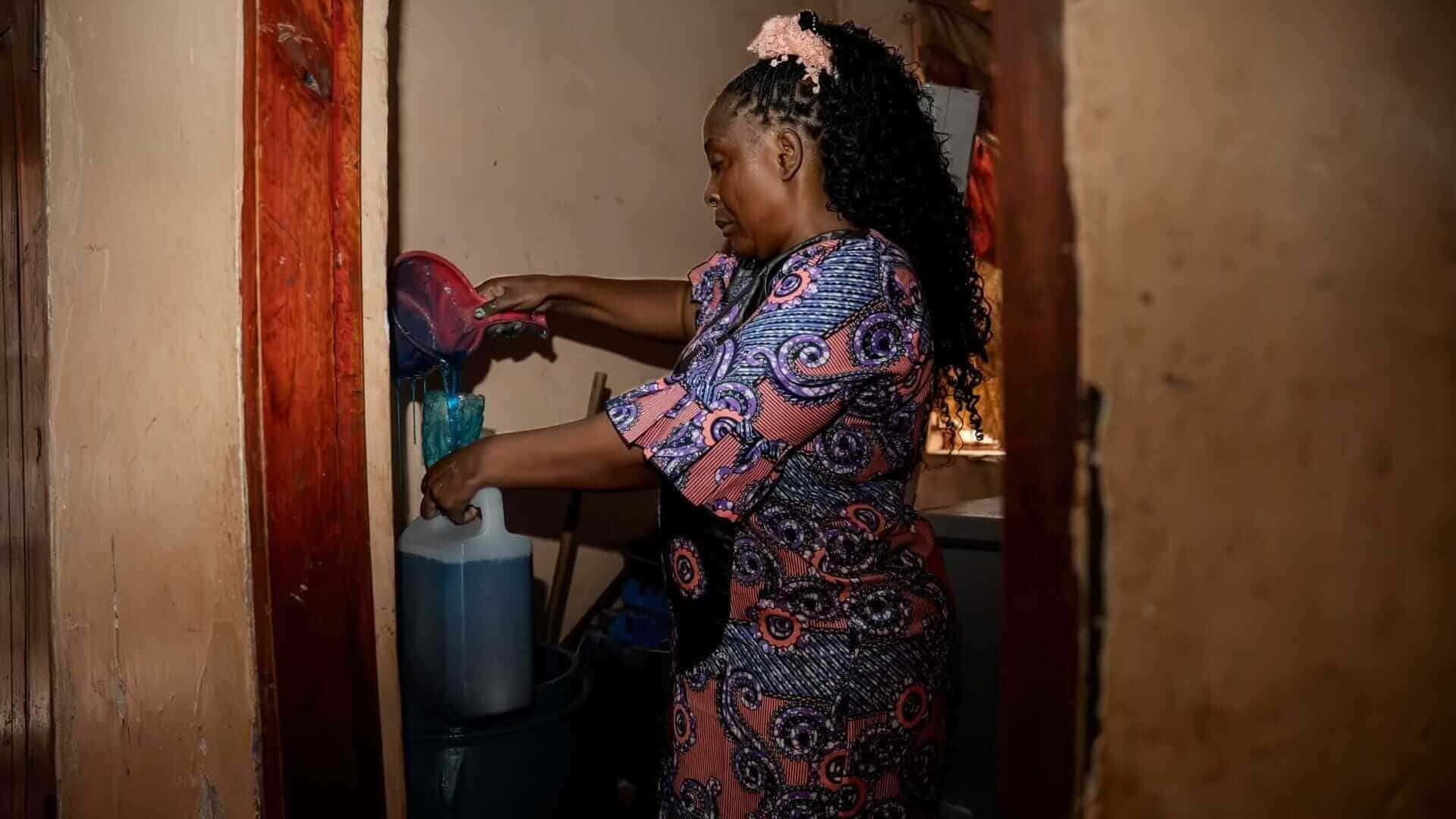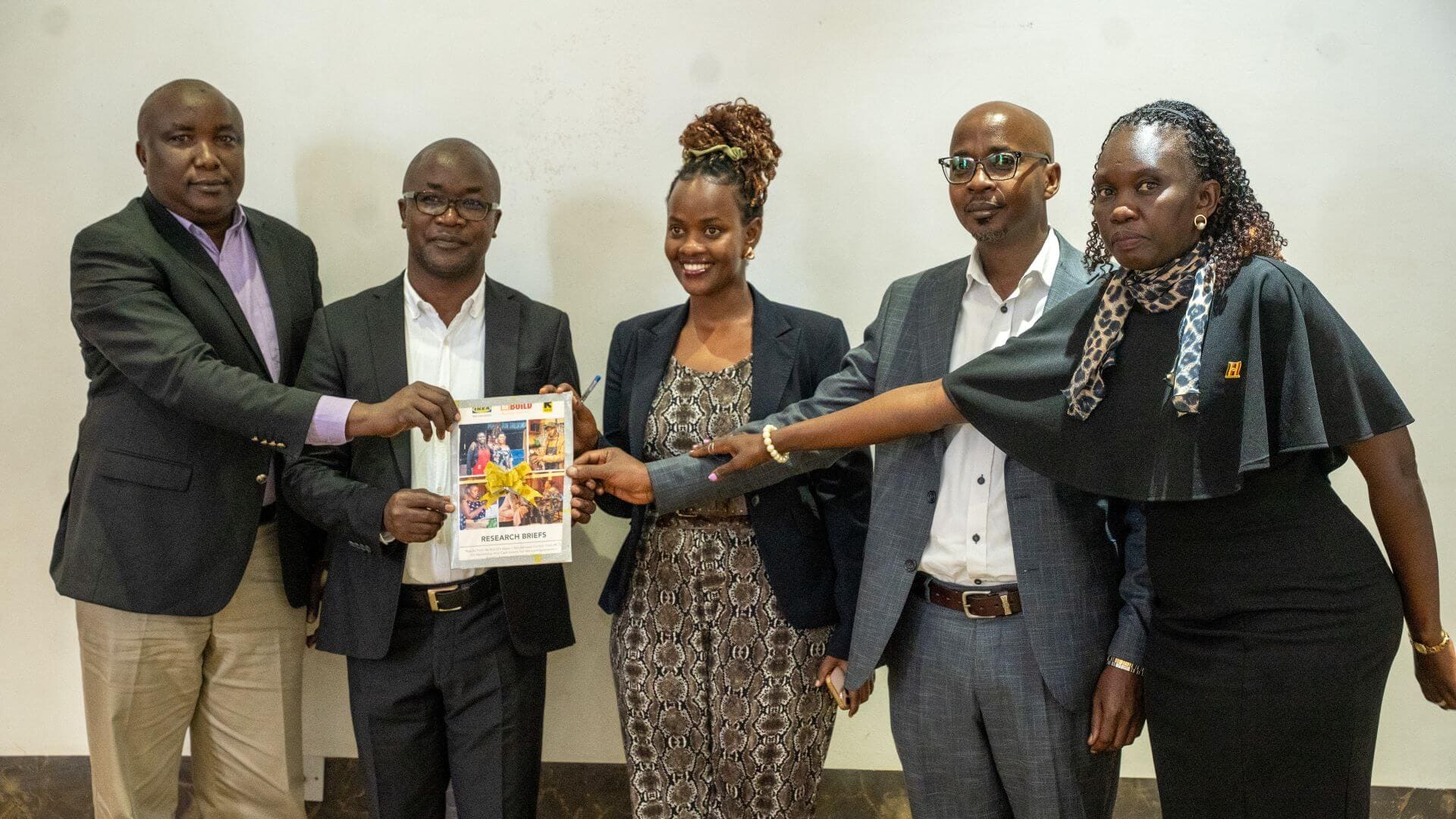Access to justice handbook offers a ray of hope for refugees in Uganda
Access to justice handbook offers a ray of hope for refugees in Uganda
Access to justice handbook offers a ray of hope for refugees in Uganda
By Tina Kalitani
A handbook that has been hailed as a step in the right direction in efforts by actors to promote access to justice for refugees and asylum seekers in Uganda has been launched, offering a ray of hope to the more than 1.5 million refugees in the country.
The handbook was launched on 13 October 2023 in Kampala at a colourful event attended by senior judicial officers, government representatives, law enforcement agencies, UNHCR, NGOs and stakeholders in the justice law and order sector.
“Our interactions in the process of producing this handbook has been eye-opening on the specific legal frameworks on the rights of refugees and asylum seekers,’’ said the Hon Justice Christopher Madrama Izama, a judge of the Supreme Court of Uganda and Chairperson of the select Judiciary technical committee that reviewed and validated the handbook.
“This is an important step in the right direction for access to justice for refugees,’’ noted Peggy Ayesiga, an official from the legal department of the Office of the Prime Minister (OPM), Department of Refugees.
Speaking at the launch, Elijah Okeyo, Uganda Country Director, the International Rescue (IRC) described the handbook as a fundamental resource.

Elijah Okeyo, Uganda Country Director, the International Rescue (IRC) described the handbook as a fundamental resource - ReBUiLD on October 13, 2023 in Kampala
“This handbook is a novel achievement that will be a reference for all actors, especially justice and law institutions who play a distinct role in ensuring refugees’ access to justice. It will be a one-stop resource for relevant refugee international, regional, and national policy framework references when dealing with refugee issues, stakeholder roles, and a breakdown of refugee rights and obligations among other aspects.
The idea of the handbook was birthed from a July 2020 rapid assessment by the IRC and the Centre for Justice Studies and Innovations (CJSI), a Kampala-based organisation that promotes the rule of law as an avenue to deliver justice to poor and vulnerable communities. The assessment uncovered challenges faced by urban refugees in Uganda, stemming from their limited knowledge of legal procedures, language barriers, and financial constraints when accessing justice services. In March 2021, during an Open Day Court, issues like non-recognition of refugee IDs, extended detentions, stagnant police cases, and tenant abuses exacerbated by the Covid-19 pandemic again came up, prompting a call for more awareness, data accuracy, legal aid, and better stakeholder cooperation, culminating in the development and launch of the Refugee Handbook on Access to Justice.
Development of the handbook was led and guided by the Judiciary of the Republic of Uganda in partnership with the Office of the Prime Minister—Department of Refugees and the IRC’s Refugees in East Africa: Boosting Urban Innovations for Livelihoods Development (Re:BUiLD) program.
Launched in July 2021, Re:BUiLD is a five-year program now in its third year that seeks to support 20,000 urban refugees in Kampala and Nairobi. Re:Build’s vision is for urban refugees and vulnerable host residents to achieve economic self-reliance and benefit from strengthened urban economic, regulatory, and social environments. In partnership with the IKEA Foundation, the program brings together the IRC, the Centre for Global Development (CGD), Open Capital (OCA), Kampala Capital City Authority (KCCA) and the Nairobi City County Government.
The recent handbook launch is just one of the several initiatives by Re:BUiLD aimed at changing policies and practices that foster urban refugee access to services and economic self-reliance. In August 2023 Re:BUild launched a policy brief on Decent Work for refugees in Kampala and Nairobi. The brief had recommendations for governments, donors, the private sector, civil society organisations and international NGOs on what needs to be done to promote decent work for refugees. Earlier, in October 2022, the program launched a brief on the impact of the cost of living crisis on displaced communities in East Africa. The brief also offered recommendations to stakeholders on what should be done to promote inclusion of refugees in social protection measures in East Africa.


